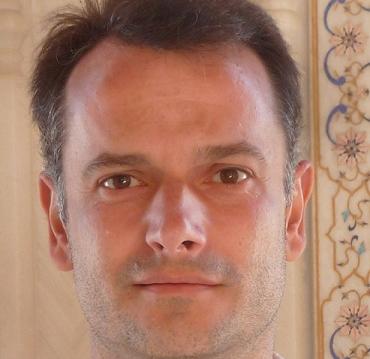
Asier Altuna García de Salazar, Universidad de Deusto
Asier Altuna is the Vicedean for Internationalisation, postgraduate studies and continuing education at the Faculty of Social and Human Sciences at the University of Deusto. He was the former chairperson of AEDEI (Spanish Association for Irish Studies). He was a Basque Government postdoctoral fellow at the Centre for Irish Studies NUI Galway, Ireland and Deusto University between 2003-8. Visiting lecturer at UNAM, Mexico, Pune, India, Osaka, Japan, Sultan Qaboos & Nizwa, Oman, KIMEP, Kazakhstan and Xiamen, China. He is a European TUNING expert in the field area of English philology. He was involved in the European Project SPEAQ on quality assurance and enhancement and a number of Ministerio de Economía y Competitividad projects on the dysfunctional Irish family and cultural practices of silence and vulnerability in contemporary Irish fiction. He has published on Spain and the Basque Country in 19th cent. Irish writing, and multicultural and transcultural Ireland.
https://scholar.google.es/citations?user=PZziEcMAAAAJ&hl=en&oi=ao
Silences that speak in Donal Ryan’s Post-Millennial Fiction
Donal Ryan’s novels approach the concept of silence as a referential motif. Depicting many of the aspects of contemporary Ireland, especially those of the relationship between community and the individual, Ryan’s writing offers a nuanced representation of silence within post-millennial Irish literature. Drawing on the theoretical tenets of silence and the more extreme unspoken and unsayable, in the work of Macherey, Bourdieu, Steiner, Franke and Foucault, among others, this talk applies some of these tenets to Ryan’s writing to determine the qualitative nature of the references to silence, the unspoken and the unsayable and the importance of their presence in the development of the thematic contents of his fiction. This talk shows that Ryan’s narratives identify silence as a tool of social control that exerts its power over the situation of those individuals silenced, but which also extends to the community as a whole. As I will discuss, silence becomes a powerful signifier in Ryan’s narratives. These deal with a large variety of topics in conflicting social situations (such as recent immigration, multicultural realities, racism, inequalities of the Celtic Tiger and its aftermath, ghost estates, illegal activities, lesbianism in Ireland in the 1970s, suicidal attempts, prejudice against the Irish traveller community, dysfunctional families, abortion, crime, corruption, minor traumas, illegitimate children and single motherhood). Silence functions as a subtle reminder of many social, economic, cultural and religious discourses in today’s Ireland, which show the containment and silent acceptance of more extreme expressions of the unspoken and the unsayable. Ryan’s fiction addresses various inconvenient and hidden truths, which remain unresolved and constitute pending issues in Ireland today.

Frank Boers, University of Western Ontario
Frank Boers is a Professor in Applied Linguistics and TESOL at The University of Western Ontario, Canada. He grew up in Antwerp, Belgium, where he obtained a PhD degree in Linguistics (with a thesis in the field of lexicology). He also earned a language teaching certificate and taught EFL for about 20 years in various high schools, colleges, and universities in Belgium. Since the early 2000s, Frank has published mostly on issues of instructed second language acquisition. In 2010, he moved to New Zealand, where he taught in the Applied Linguistics and TESOL graduate programs of Victoria University of Wellington for 8 years. He was also co-editor of the journal Language Teaching Research for a while in that period. His most recent book is Evaluating second language vocabulary and grammar instruction: A synthesis of the research on teaching words, phrases, and patterns (Routledge, 2021).
https://scholar.google.co.nz/citations?user=bT_pR6wAAAAJ&hl=en
Instructional approaches to multiword expressions in a second language: A critical review
The past two decades have witnessed a proliferation of studies on multiword expressions (such as collocations, idioms, and phrasal verbs), including research on the effectiveness of diverse interventions intended to help L2 learners acquire such items. Such interventions range from the modification of texts (e.g., incorporating multiple instances of the same expressions and making them more noticeable through typographic means) to decontextualized practice (e.g., the use of exercises frequently found in mainstream textbooks) and the use of mnemonic strategies.
In this talk I will review a broad collection of such ‘treatment’ studies and will try to adopt a practitioner’s perspective in doing so. It will be argued, for example, that some of the approaches that have been put to the test in empirical research are unlikely to be tried by language teachers owing to the substantial investment of time and effort they require. A recurring theme in the talk will be the distinction between the statistical significance and the pedagogical significance of the research findings. While it is of course useful to detect whether one treatment condition leads to more learning than another according to inferential statistics, it is also worth taking a closer look at the descriptive statistics to evaluate how encouraging the learning gains really are under the more successful treatment. I will then highlight research findings that can directly inform pedagogy and textbook design in relatively straightforward ways. This includes quick and easy steps for making certain multiword expressions memorable, and the use of learning procedures that avoid trial and error. The talk will conclude with suggestions for further work in this area.

Angela de Bruin, University of York
Angela de Bruin is a Lecturer (Assistant Professor equivalent) in the Department of Psychology at the University of York (UK). She completed her PhD at the University of Edinburgh (2013-2016) and then worked at the Basque Center on Cognition, Brain and Language as a postdoctoral researcher and Marie Curie fellow (San Sebastián, 2016-2019). Her main research interests are bilingualism, language production, cognitive ageing, and executive control.
https://scholar.google.co.nz/citations?hl=en&user=JlVFSNUAAAAJ
